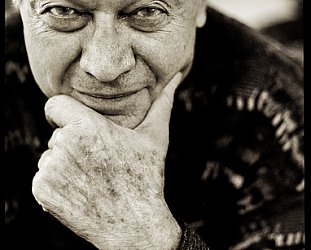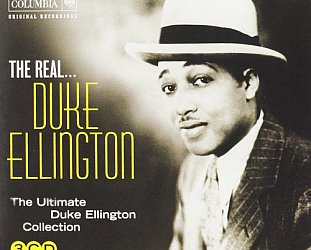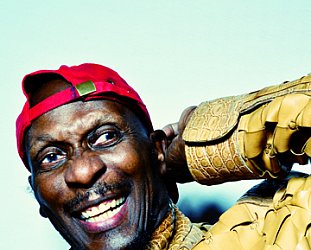Graham Reid | | 2 min read

The best suspense movies can be very simple. There’s a lot you can do with a baby sitter, a telephone and a threatening phone call.
Or two people abandoned at sea.
The chill factor in the low-budget but still gripping Open Water - which engaged and terrified audiences in the mid 90s - came from a combination of primal fear and the invisible.
There are givens here: we have a deep fear of sharks and the fact they might be somewhere down “there“, invisible beneath our feet was enough to terrify us senseless.
That fear certainly terrified the couple in Open Water.
Then they see the fins.
Open Water had some obvious parallels with Steve Spielberg’s Jaws of 75 - over 30 years ago - and yet a re-viewing of that Spielberg classic (now on mid-price DVD with a 50 minute making-of doco and deleted scenes) shows how much more rounded it was.
There was more than just a shark in Jaws: there were conflicting egos; a stand-off between the reasonable man of science and the aggressive man of instinct (Darwinism v Primitivism?); and the faces of (corporate) greed and (post-Vietnam) blood-lust among the townsfolk and tourists.
But a better point of comparison for Open Water in terms of suspense using very little by way of special effects was Spielberg’s first movie Duel from 71.
Now available in special edition DVD, it comes with excellent extra features which include the director and writer reflecting on a film which started off as a television movie-of-the-week and was expanded by the addition of 15 minutes for theatrical release.
At the time Spielberg was a very young director on his way up. He’d done some episodes for Colombo, Marcus Welby MD and a few other tele-series, then was signed up to adapt Richard Matheson’s road-movie short story, which had appeared in Playboy, into a tele-film.
Spielberg shot Duel in less than a fortnight. In the interview he says he couldn’t do that today but back then he was young and hungry. What he doesn’t say is that he was also enthusiastic and gifted, and used every cinematic trick and technique available.
He didn’t make a movie for television as we understand that genre today, he made a movie which appeared on television.
And what a movie: just one man on the open road up against a monster truck driven by an invisible and anonymous man, who for reasons which need not be be specified in this post-conscience age, is out to kill him.
“What I learned from Hitchcock,” says Spielberg, “ is don’t ever let the audience off the hook. Take your time and draw out the suspense as long as possible.”
Duel certainly does that.
Mild-mannered David Mann is on the road to a business meeting somewhere in desertscape California when he is slowed up behind a battered, smoke-belching truck. He passes it, then suddenly it passes him.
The truck driver, whom we never see, waves him past again -- right into an on-coming car.
From there on it is a game of David versus the Goliath of a truck - or Mann versus Machine - on the deserted desert highway.
There’s a lot you can do with two men on an open road.
Spielberg, who reflects on the film with great affection as the one which gave him a career in movies, likened it to “Psycho with The Birds, only it’s on wheels”.
He repeatedly uses low angles to make the battered truck look even more monstrous, and you can tick off enough tracking, close-up and framing shots to fill any film studies curriculum. And even if the metaphor of Mann versus machine is a bit strained it is there to be explored.
The tension is amplified by Billy Goldenberg’s atmospheric, experimental and unconventional soundtrack which adds to the already high state of unease and tension.
Spielberg says Europeans saw in Duel a metaphor of class struggle in America which taught him early on his films might not be received in the way he created them, that they would belong to his audience to interpret.
Duel is a tense thriller even now and, by being made for the small screen in the first place, it still stands up when seen on DVD.
For a debut it was also an impressive calling card.
Yep, there’s a lot you can do with a few simple elements -- and primal fear.






post a comment